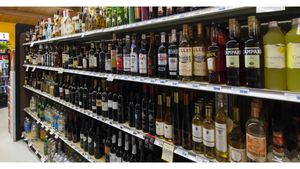'BRANDING' EGGS IS CREATING NICHE CATEGORY
KING OF PRUSSIA, Pa. -- As distribution expands beyond 45 states, the patented whole eggs produced by Eggland's Best is the latest dairy-aisle product to transcend commodity status to become a brand-name star.In the process, the company has demonstrated once again that there's a lot happening in the dairy aisle these days, including an explosion of new milk products and packaging (Cash Cow, SN 9/7/98).
October 12, 1998
ROBERT VOSBURGH
KING OF PRUSSIA, Pa. -- As distribution expands beyond 45 states, the patented whole eggs produced by Eggland's Best is the latest dairy-aisle product to transcend commodity status to become a brand-name star.
In the process, the company has demonstrated once again that there's a lot happening in the dairy aisle these days, including an explosion of new milk products and packaging (Cash Cow, SN 9/7/98). But eggs? According to Charles Lanktree, company president, his Eggland's Best line does to the egg case what milk chugs has done to the milk category.
"Eggland's Best is very much different from a commodity item," he said. "The cost of producing [commodity] eggs is based on a least-cost formulation, whereas ours is a set formula."
Customers encountering a dozen Eggland's Best eggs will find a carton imprinted on the inside top cover with the salutation, "Welcome to Eggland's Best." The paragraph that follows describes the health benefits of purchasing this particular "brand."
But most important -- at least from a marketing point of view -- is the red-ink "EB" in a dashed circle, stamped onto every shell, literally "branding" each individual egg that meets the company's quality standards.
The difference has allowed the company to "upscale" the image of eggs, while at the same time securing a higher price point. But, Lanktree noted that the price of Eggland's Best is based more on the hens' all-vegetarian feed formula than anything else. Meanwhile, traditional egg purveyors possess the ability to change feed formulas, based on whatever ingredients are least expensive at that time.
"It's an expensive formula, but it cannot change," he said.
The company, based here, has been steadily expanding distribution of its branded eggs through franchises who must meet strict standards.
"We've given [franchisees] certain guidelines, whether they be product procurement or product itself," he said. "All our eggs, while they're being run, have a [United States Department of Agriculture] inspector there, in attendance, testing the eggs to our standards."
Among the standards that qualify the eggs for branding are lower cholesterol levels, and superior nutritional qualities. According to Lanktree, Eggland's Best branded eggs contain 190 milligrams of cholesterol (vs. an average of 215 milligrams in ordinary eggs), six times the amount of Vitamin E and "significantly more" iodine than ordinary eggs. Also, Eggland's Best eggs have a higher ratio of unsaturated to saturated fat than their traditional counterparts, he said.
Besides the USDA inspections at plant level, "we get feed samples from [franchisees], we get product samples every week and we also retail samples that we go out and get," he said.
To reinforce the "brand equity," the company secured a patent in 1993 for the naturally lower-cholesterol eggs, which are produced by hens on a vegetarian diet that includes kelp, rice bran, alfalfa meal and canola oil. Additionally, the company has gained the permission of the American Dietetic Association and American Diabetes Association to carry exchange list verification on its packaging.
About the Author
You May Also Like




